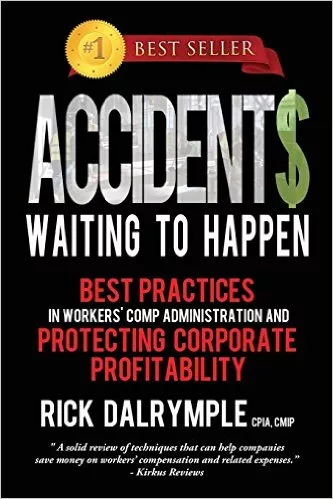What It's Like to be Me
As you may have noticed, I usually write about ways contractors can improve their businesses. You may wonder why I have all the answers and how I run my business. Well I don't have all the answers, but I can tell you what it's like to be me. I wish I could be more exciting - you know something like Indiana Jones does consulting - but in reality, spending a day with me would be like spending the day with a cross between Dr. Phil and Frasier.
If you had asked me a few years ago, a day in my life would have involved running through airports, speaking and developing corporation contractor programs. While it can have its good points, travel, for the most part, is waiting in airports, sleeping on planes and speaking. I still teach 20 or so seminars a year, but not the 75 to 100 a year I used to. Now I concentrate much of my time working with the 166 participants Proof Management has in its landscaping, roofing and painting PROSULT¿ networking groups.
Honestly, these groups have totally changed my business and my life. When you speak, you never really get to know people and there is little commitment from either party. Both the speaker and audience can live in denial: The speaker assumes his evangelist role to save the contracting world, but in reality the attendees probably go back and do what they have always done.
Good Advice
Networking groups are different. Since the same contractors come back year after year, we are both accountable to the process. I have to offer advice that works and they have to report on their progress as we both benchmark their numbers and profits each year. So, much of my day is spent trying to help my 166 subcontractor business children improve their life.A typical day goes something like this:
At 6:45 a.m., I see that 20 e-mails came in during the night. Many are junk and there is an occasional joke, but they are mostly realistic and necessary requests for help.
At 7:30 a.m., our business manager arrives, we chat a little and she reminds me of any deadlines and I jump into projects such as finishing meeting agendas, finishing this article, etc.
Then the phone starts ringing and we are off and running. Our first caller is a young contractor who is one of my favorite guys because he is such a good student. He knows his numbers and has built a really good business from $175,000 six years ago to $1.5 million this year. He is concerned that productivity and service are down while overall income is up.
I humorously point out to him that he made $200,000 last year and will make $300,000 this year. While his production is down and customer service is off, he has to be realistic about running a perfect business when sales have grown 50 percent in the past year. We both agreed it was a good problem to have and we designed a series of production meetings he could offer to help train his people. We also discussed the value of pre-job meetings and talked about how they might be implemented. I encouraged him to specifically track complaints so the complaints can be categorized and solutions targeted. We talked about how most complaints are really issues with systems and communications.
Challenges
Later in the morning, I talk with Dan Kohler, a former therapist and current business coach whom we use to help guys with employee testing or to overcome issues they may be stuck with. We have a long conversation about two smaller contractors that may not make it. While working in the networking groups, I have noticed an amazing pattern. Some of the 12 contractors in a group change quickly, others take a year or so and others just seem stuck and can't change.I have found a certain percentage that did OK when they were on the job banging shingles, but they become very inefficient as they move off the roof. They might be perfectionists, have ADD, or just hate paperwork. I have known for years that most contractors are better craftsmen than businessmen, but I have learned that it goes deeper than that.
Physical work is almost therapeutic; a form of exercise that keeps the endorphins moving, lets the contractor sleep better at night and helps avoid mental burnout. Plus hard work makes a contractor more money: the faster he nails shingles, the more money he makes.
This same logic does not hold true for administrative and sales work. Without good systems and help, it all can become a viscous circle of the paperwork and confusion that the contractor hates. Without the endorphins from working in the field, it can be tough to make this new office role work.
Next a contractor calls in and wants to join our networking groups. He heard about us somewhere and says he may want to join the networking group. I tell him some basic information about Proof Management and PROSULT¿ and then offer some free consulting. My gut is telling me this person knows everything and would not fit into the group well. He really does not know his numbers and has the "yes but" disease (every insight offered is replied with a yes but denial) yet he did $700,000 in sales and only made $40,000. This guy just does not sound like the kind of person I want to spend the rest of my life helping. It would be like beating my head against the wall. I ask some tough questions and direct him to our Web site. If the pain gets deep enough, he may change but until then it is all too much work.
A painting contractor calls because he has a helper that he must fire. He really likes this guy - he shows up early and is polite, but he is slow and not able to paint. He has been with the company eight months and just can't do it. He does not have the hand speed. Then I laugh as the real problem surfaces: The Hispanic worker just had a child and named it after the contractor, who now feels bad about firing him. I suggested that the contractor help find the worker a job at a factory or other place where he would fit in. The contractor immediately thought of someone he could call.
Next one of our contractors phoned about the union - an organizer had just called on him. I told him this was not my area of expertise but to get a labor lawyer to explain the rules about what he can and cannot do. I also faxed some info out of a file. More importantly, I offered the names of a couple of contractors in our network group that have had this problem.
A second-year contractor has not paid his fees and our business manager turns it over to me. I phone him and he has no money. It is the same old story: people won't pay me, it's my workers' fault etc. He has not been a good student; it seems like his pride gets in the way and I doubt he will be around much longer. I took one last shot at offering sound advice and asked him why he thinks others in his group do not have the same problem. I will follow through with an e-mail but I doubt he will change.
Perspective
It is now 6:00 p.m. and I am about to leave. Another contractor calls with news that he and his wife have been trying to have children and now triplets are on the way.This was a pretty typical day and at the end of it, just like you, I wonder where all my time went. Tomorrow I will start over. I like to work and generally put in 50 to 60 hours each week. I have been working hard to restructure my business so that I do more of the things I enjoy. I would encourage you to do the same.
I asked my wife once what she thought retirement would look like. She said we would work in the yard, go shopping, etc. I wondered whom she would be married to at that point, because it sure wouldn't be me!
As a business owner, working for retirement may sound like a great goal but statistics show us that contractors do things like buy motor homes and then come back and worry their kids. The trick is to build a business we enjoy and that allows us to do the things we are good at. I am not there yet but I am sure working on it and would encourage you to do the same.
Looking for a reprint of this article?
From high-res PDFs to custom plaques, order your copy today!




